Superpowered politics
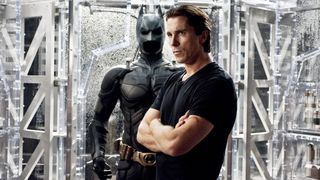
Superhero movies, once considered a risky commercial venture, have gone on to become one of the most popular and lucrative genres in cinema. They're everywhere. Behind all of the explosions, lasers, and villainous monologues, however, there often lies a serious political statement. Let’s not exaggerate, they’re no Dr. Strangelove, but many of our favourite superhero movies have boasted political messages that you might not have even noticed... until now.
30. Superman (1978)
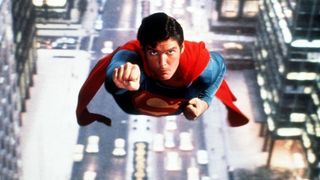
Released in 1978, Superman took his first cinematic flight in the aftermath of the Vietnam War and Watergate. The film openly acknowledges the cynicism of its era, before instead presenting a noble hero that represented the embodiment of everything that America once stood for - “truth, justice and the American way”.
What’s more interesting is that Superman is an alien immigrant who embodies these cherished values, overcoming his own personal tragedy as an example to those disillusioned by recent events. At one point, the Man of Steel tells love interest Lois Lane “I’ll never lie to you.” You know, unlike those rotten politicians.
29. X-Men (2000)
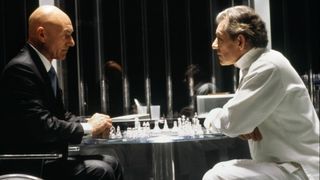
The numerous open references to the Holocaust aside, the entire X-Men universe is a commentary on racial tension. Two heroes with strong, decent beliefs take very different approaches to their cause, the question of mutant equality being a direct metaphor for the American civil rights movement. Director Bryan Singer once told the BBC that “Professor Xavier was Martin Luther King and Magneto was Malcolm X, and these were two men who had very strong, decent beliefs, but had taken different roads."
"The irony of that, and the moral ambiguity of that, intrigued me," explained Singer, saying that X-Men "was a step beyond simple crime-solving, superhero action. It was much more socio-political, and in that way exposed more truth.”
28. Spider-Man (2002)
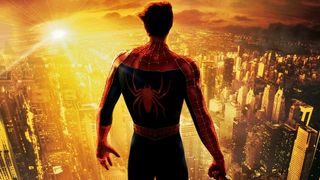
Released soon after 9/11 and set in New York, it’s almost inconceivable that Spider-Man wouldn’t carry some sort of political weight in the wake of such a catastrophic event. In fact, with a character and a city so intertwined, ignoring it would have come across as callous. Several changes were made to the film’s promotional materials in reaction to the attacks, removing images of the World Trade Centre.
Director Sam Raimi also added a scene after shooting finished, depicting a group of people helping out Spider-Man by throwing objects at the Green Goblin and shouting: "You mess with one of us, you mess with all of us" in tribute to the people of New York.
27. The Incredibles (2004)
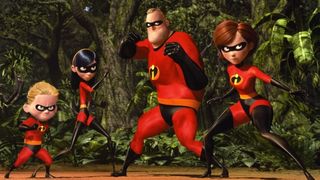
There’s a very middle-American sensibility not usually seen from Hollywood in The Incredibles, advocating the necessity of a strong nuclear family in increasingly unstable times. In a family made up of heroes, Mr Incredible must realise what’s truly important in life – and it isn’t a shiny car. Family is everything. Even when you’re a superhero.
Also worth noting are the nods to today’s blame-free society, and the lawsuits that come with it. "I just always wondered when a superhero broke through a wall, who was going to pay for that wall?" writer-director Brad Bird told the New York Times. "In the small-minded world we live in, that deed is not going to go unpunished."
26. Fantastic Four (2005)
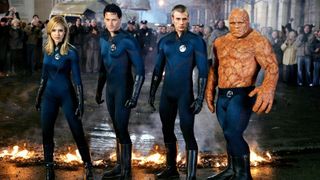
Rather than going after governments or terrorists, Fantastic Four instead holds up a mirror against celebrity-obsessed society. After gaining their superpowers, the characters turn up in New York and instantly become famous, going into hiding from the media as they are recognised by photographers on the street - like paparazzi pursuing celebrities.
Regardless of its faults, the film shows the truth of being a superhero/celebrity in the real world: action figures, marketing teams, brand awareness, and public perception.From this perspective the actual villain of the piece, Doctor Doom, is almost secondary to the story.
25. V For Vendetta (2005)
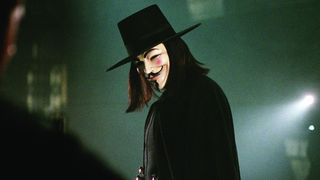
V for Vendetta is all politics. The disfigured product of evil, government experiments, corrupt totalitarian governments, fabricated news, police brutality… it’s starting to sound a little too close to home.
V is the dramatic embodiment of the idea that one man’s terrorist is another man’s freedom fighter, and the impact of his actions represents a warning to viewers over the danger of apathy, which can allow a government that isn’t held accountable to strip a civilisation of its liberties. And there’s a dig in the ribs for the good old U-S-of-A, too, with torture scenes in prisons that look reminiscent of Abu Ghraib and Guantanamo Bay.
24. The Dark Knight (2008)
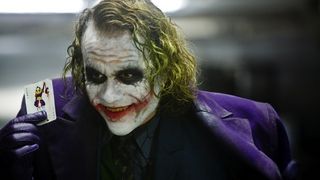
Alright, you probably already knew that this one was a political movie. Commentary on the moral compromises made since 9/11 pervades The Dark Knight. From the crumbling building behind Batman in publicity posters to the overt reference to warrantless wiretapping, this movie is an explicit statement on the times we live in, approaching the topic from all angles with moral conflict after moral conflict.
Every time torture is employed it fails miserably and the Joker wins. Every time corruption is condoned, every time the rules are compromised, it creates an escalation in the violence. When Batman makes a selfish choice, it ultimately costs him badly because evil is one step ahead. And then there’s the Joker himself; anarchism personified. His relationship with Batman reflects the notion that terrorism only works when we let it make monsters of us.
23. Iron Man (2008)
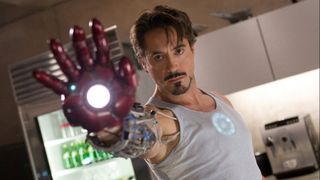
There really is no room for misinterpretation here. In fact, Stark says it himself at a press conference: "I saw that I had become part of a system that is comfortable with zero-accountability."
The setting of Stark’s '60s origins are updated to war-torn Afghanistan where, after the billionaire directly experiences the role which arms manufacturers play in perpetuating war, he decides to do something about it. When he later returns, in full Iron Man regalia, he deftly takes care of the terrorist group who had captured him providing - for a moment - an efficient conclusion to a seemingly endless and confusing war. If we all wish it hard enough, America will end the war on terror.
22. The Incredible Hulk (2008)
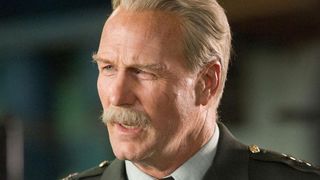
While soldier Emil Blonsky might be the one who Bruce Banner ultimately battles in this second cinematic iteration of the big green guy, it’s General Ross who proves to be the scarier threat.
A stark reminder that extremists exist on either side of the fence, Ross is a military devotee, desperate to harness the Hulk and turn it loose on America’s enemies, regardless of the potential for collateral damage. Though Ross is an exaggerated embodiment of America’s neoconservative wing of war hawks, there are undoubtedly politicians in power today who’d agree with his point of view.
21. Iron Man 2 (2010)
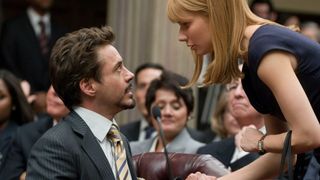
Tony Stark might be a hero, but he’s also symbolic of a lucrative privatised industry as he fights for property rights against the government trying to get their grubby mitts on his tech. Exhibiting all the traits of a character from Ayn Rand’s Atlas Shrugged, Tony is hauled into a hearing where he responds to their demands with his trademark irreverence; "You want my property? You can't have it!"
He humiliates his opponents by winning over the crowd, and concludes by committing to “serve this great nation at the pleasure of myself." So, Tony's a metaphor for capitalism, then. Throw in Russian (movie shorthand for communist) antagonist Ivan Vanko and it’s a veritable political palooza.

